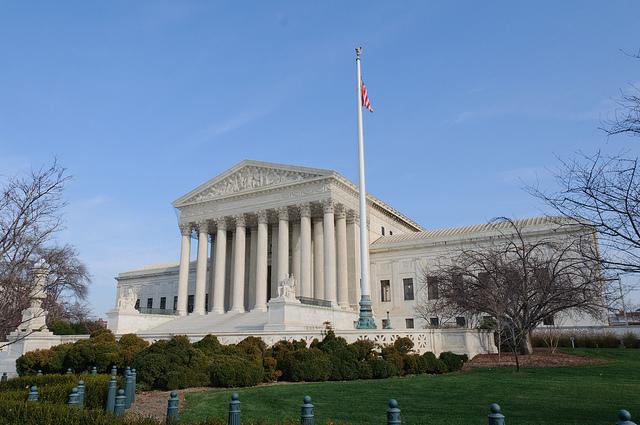By Dylan McGuinness, political blogger
When the news hit that Supreme Court Justice Antonin Scalia died, it didn’t take long for politicians on both sides of the aisle to send their condolences and hastily digress to their more important message: Who should replace him. As the statements poured in, each side masked their politically convenient messages in what they said was proper governmental responsibility.
The Republicans endowed themselves as protectors of America’s essential democratic value: The people’s voice. Senate Majority Leader Mitch McConnell, R-Ky.,advised we should let the November election prove who the people want to replace the “conservative sage.” The Republican majority of the Senate has largely supported his position (two have defected). But as Sen. Elizabeth Warren, D-Mass., pointed out, the people have already demonstrated their will: President Barack Obama was elected twice (to four-year, not three-year terms), after all.
The Democrats pointed to the Constitution that Scalia himself held dear (ha!), which endows the president the responsibility to nominate justices and the Senate to advise and consent to them. It’s a practical standpoint, but, as Republicans have tirelessly demonstrated, they were singing a different tune when it was President George W. Bush on his way out.
What irritates me about each side’s argument is their essential irony.
Look to Sen. Chuck Schumer’s, D-N.Y., 2007 speech advising the Democratic Senate to “reverse the presumption of confirmation” for future nominations from the Bush administration, the Republicans instruct us. Are we to believe the Republicans passionately accepted his view at the time, too? Or did they find the 2007 Schumer to be obstructionist and dishonorable?
Democrats point to Ronald Reagan’s 1988 appointment of Justice Anthony Kennedy. But missing in their emphasis on historical precedent is the prior nominations of Robert Bork, who was rejected by the Senate and whose name is now a verb, indicating what the Republicans may plan to do to Obama’s nominee, and Douglas Ginsburg, whose nomination was withdrawn. Bork didn’t have a claim to political moderation, but the Senate hearings in that case don’t exactly signify election-season bipartisanship.
This is all to say that each side’s position in 2016 derives not from constitutional principles or democratic values, but mere political convenience and self-interest. The Republicans aren’t stalling because they genuinely want the people’s input; they’re doing it because Barack Obama is president. The Democrats aren’t pushing for a quick appointment because the Constitution says so; they’re doing it because Barack Obama is president.
It’s not surprising politicians have drawn political stances when important political consequences are on the line, and it’s understandable why each side would pragmatically wrap those stances in the most honorable arguments. But can we just call it what it is? It insults the intelligence of voters to claim otherwise and many, unfortunately, seem to take the bait.
The Democrats have the benefit of being on the right side of the argument in this 2016 rendition. There’s the obviously unsound proposition that the people can only have a say in the appointment if we wait until the next president takes office. But there’s a counter to that assertion that suggests there’s been a dramatic change in political morale since the last election which may or may not have standing. The more important logical flaw with the Republican position, I think, is its presentation of the next election as a one-issue ballot referendum: Which direction should the Supreme Court take in the future? But November is not a referendum; it’s a presidential election. And it’s totally within reason for someone to believe Marco Rubio would make a better president than Hillary Clinton while not necessarily agreeing the Court should keep its conservative majority. The Republicans’ proposition for the next election basically paints every American voter as an ideological ballot-puncher. I’d hope there’s at least a significant portion of the American electorate that isn’t.
President Obama should appoint a new justice: One that is – in the interests of bipartisanship and even the Democrats’ presidential hopes – moderate, qualified and recently confirmed by the Senate. Sri Srinivasan, the Court of Appeals judge on the D.C. Circuit, comes to mind, whom many have dubbed the frontrunner. He’s clerked for the conservative Justice Sandra Day O’Connor, defended major oil corporations and litigated for President Obama before the Supreme Court, and he was unanimously confirmed to a well-established Supreme Court breeding grounds. The Republicans should not only hold a hearing for such a candidate; they should confirm them – both because it’s prudent and because an obstructionist rejection of a qualified nominee could hurt their White House aspirations.
And if a Republican happens to win the election and a justice happens to die or resign in the winter of 2020 or 2024 (Justices Ginsburg, Kennedy and Breyer will be over 80-years-old by then), the Democrats should return the favor. There’s no room for #NoHearingNoVote in a two-party system.
Photo courtesy Richard Gillan









